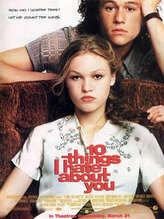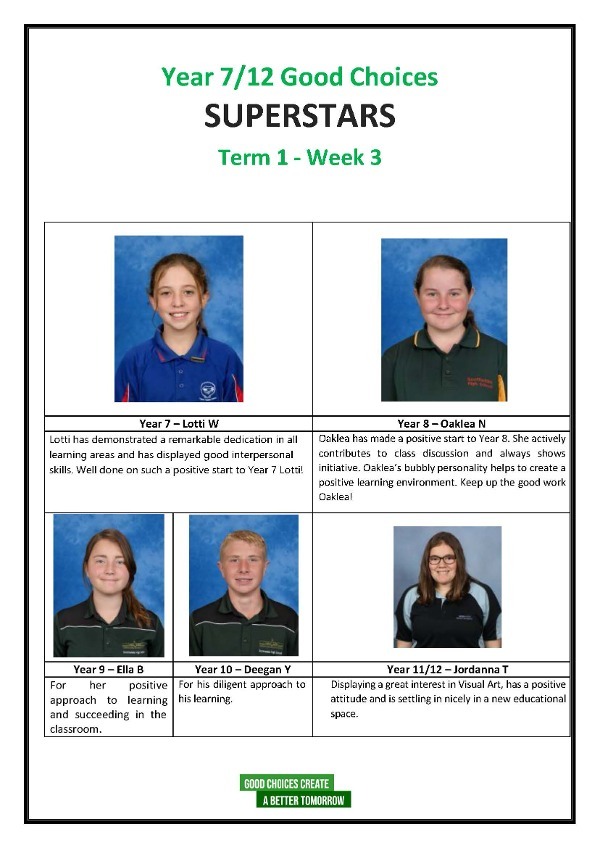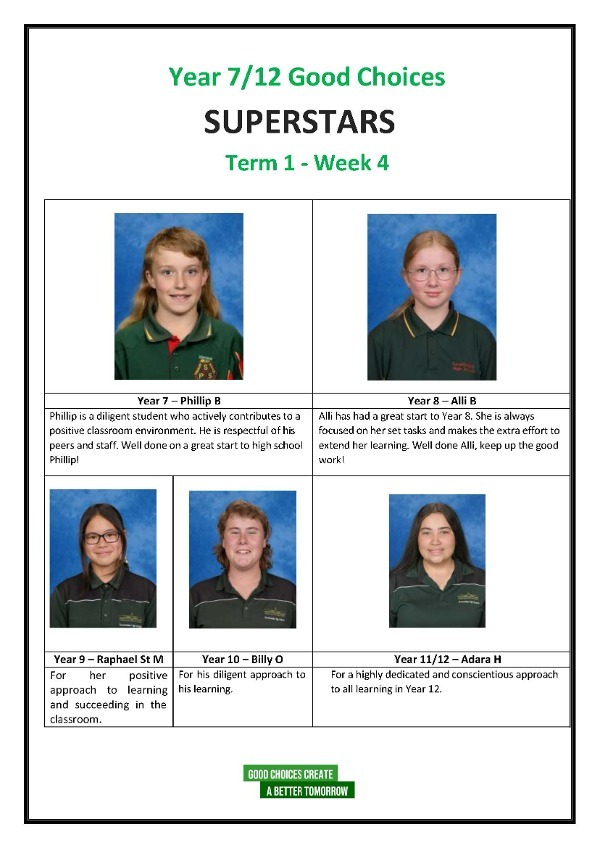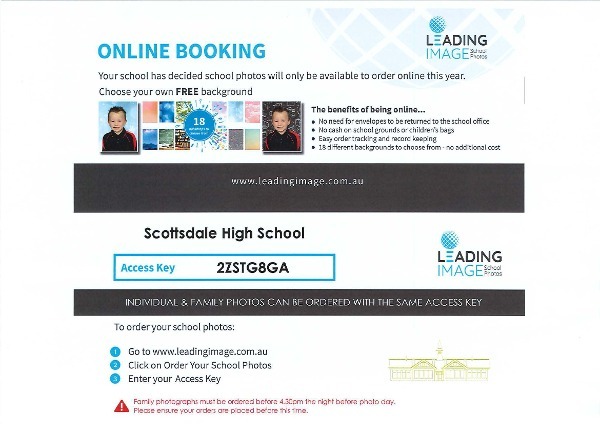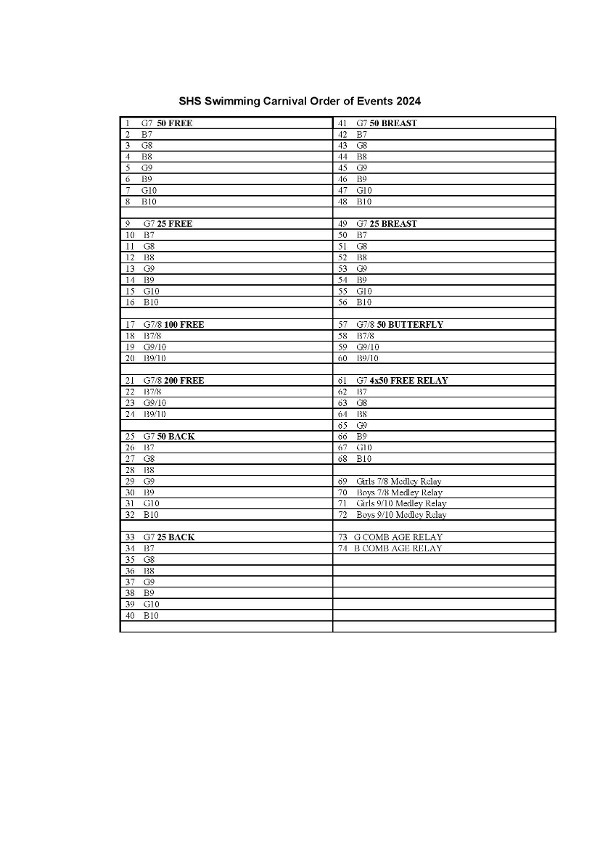Filter Content
Thank you to the families who were able to join us for our welcome BBQ on Tuesday evening. It was wonderful to connect with families who are new to the school. It is always beneficial for us to work in partnership with our families to support students’ learning.
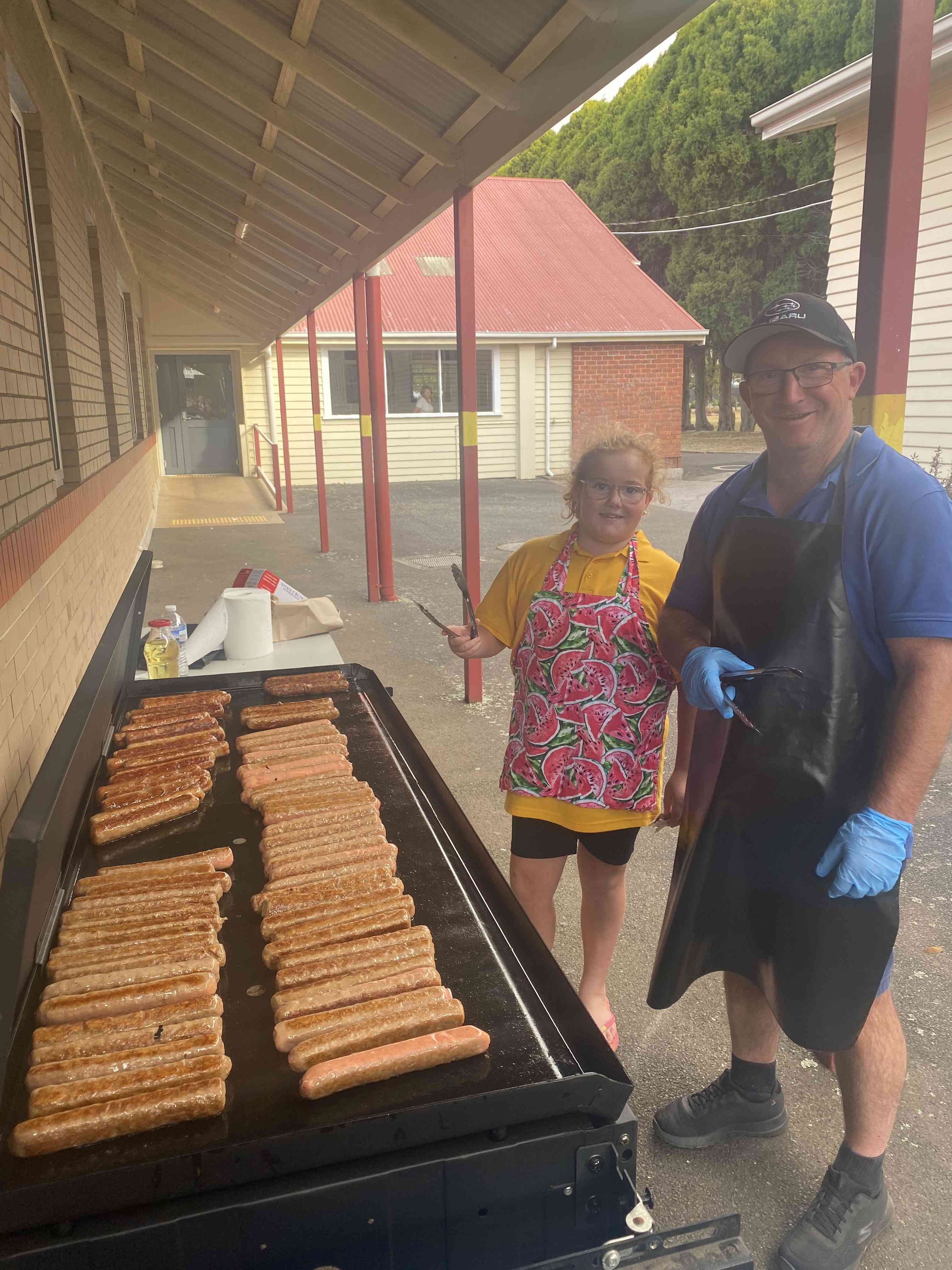
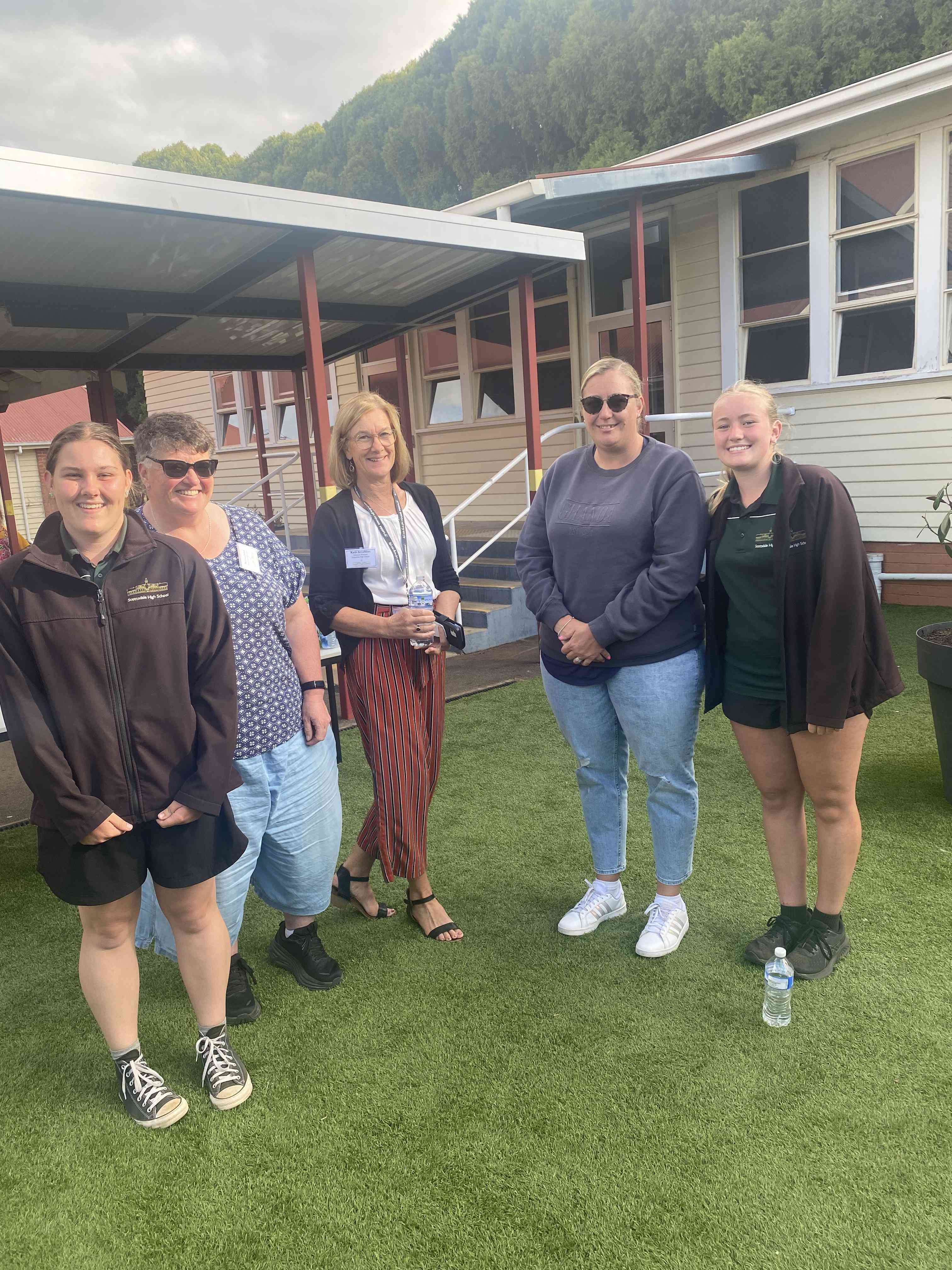
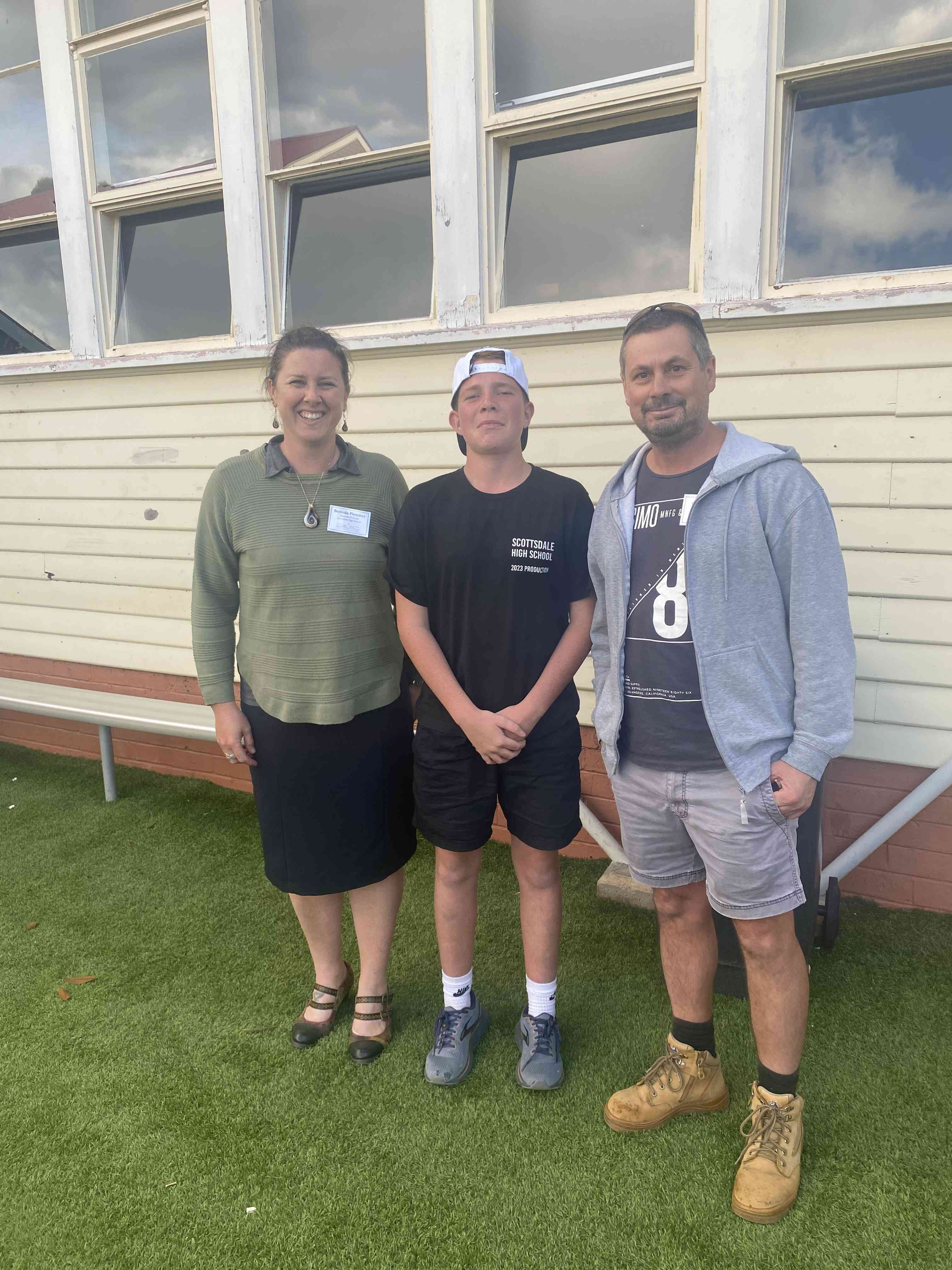
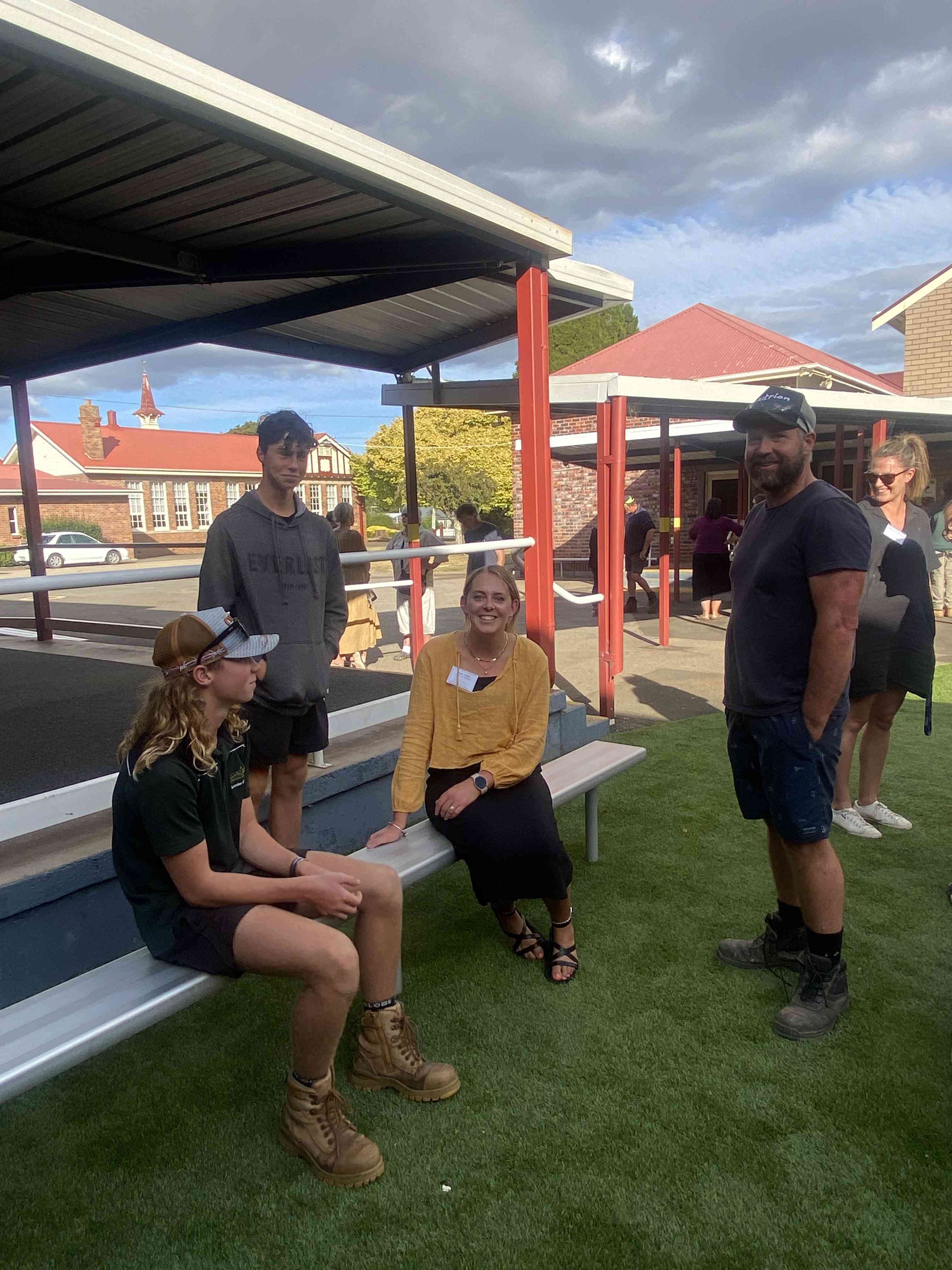
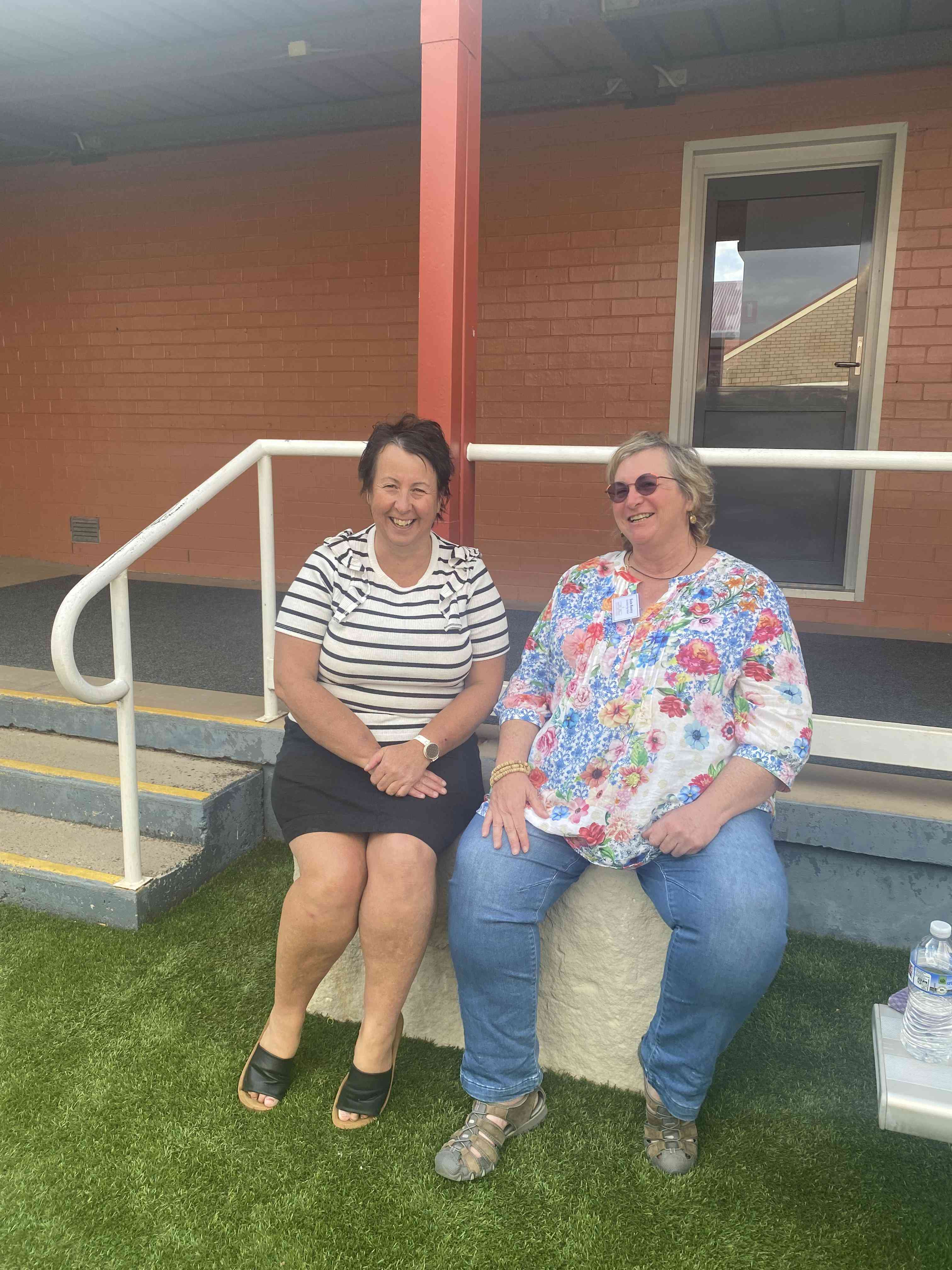
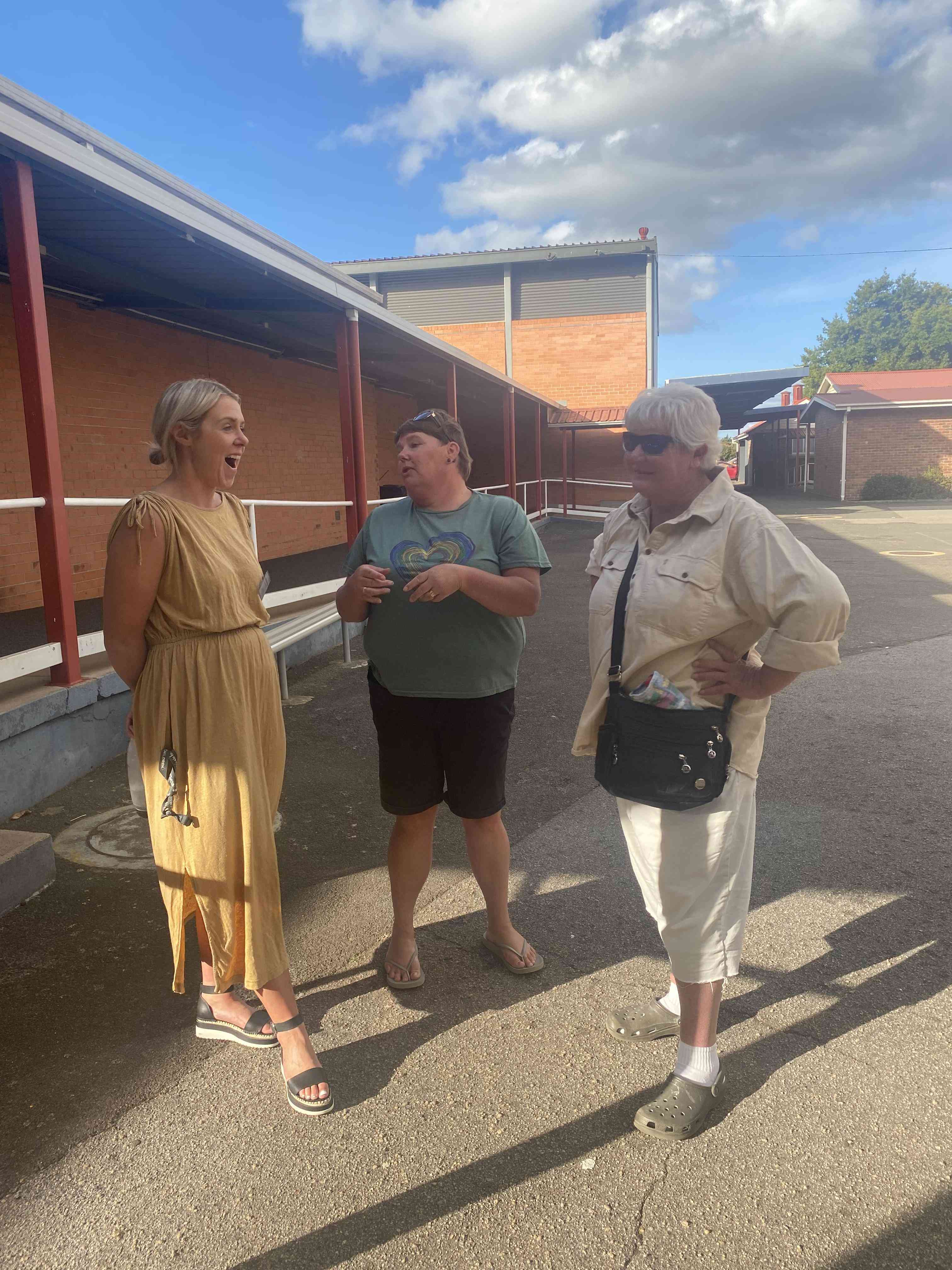
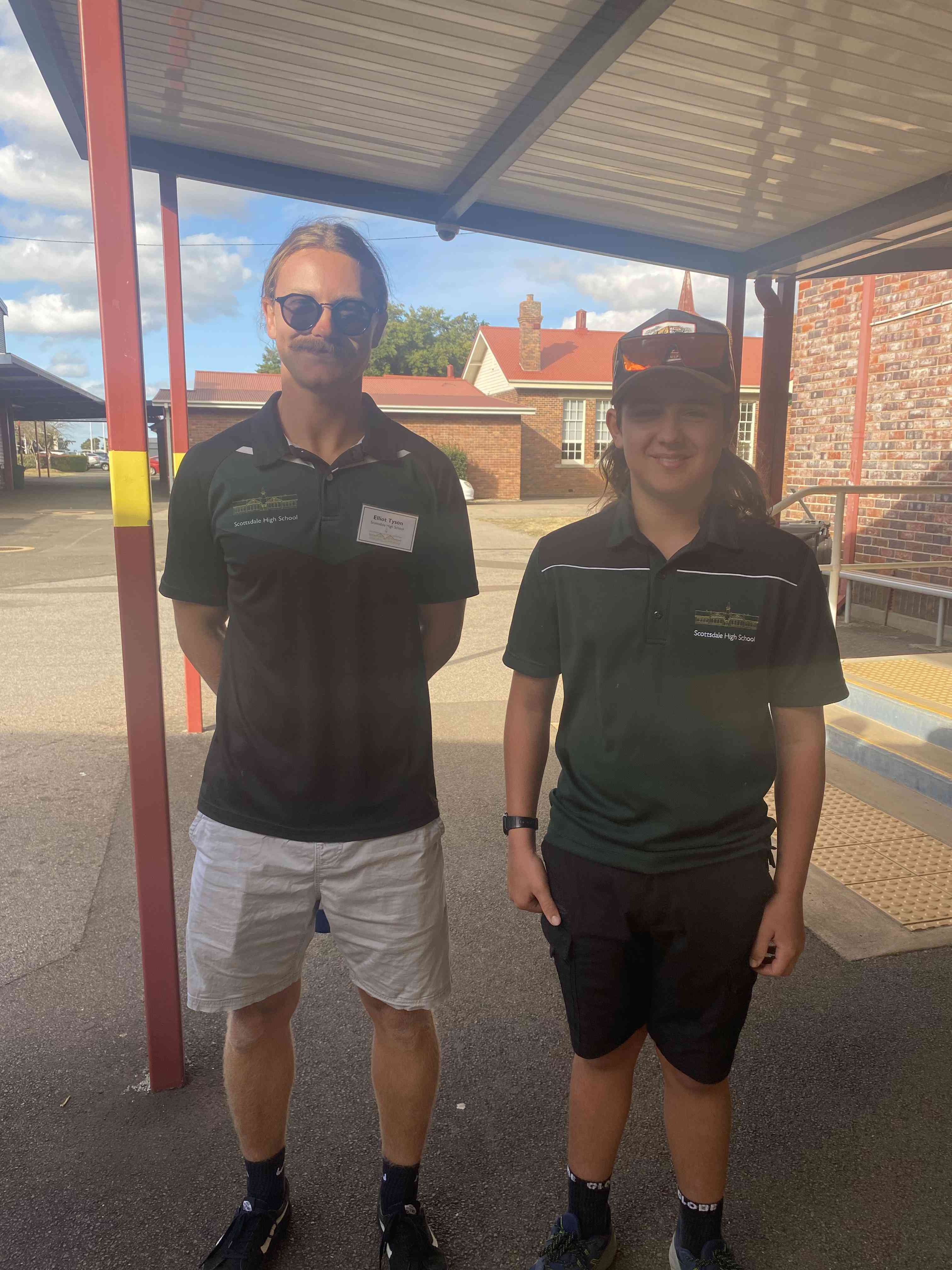
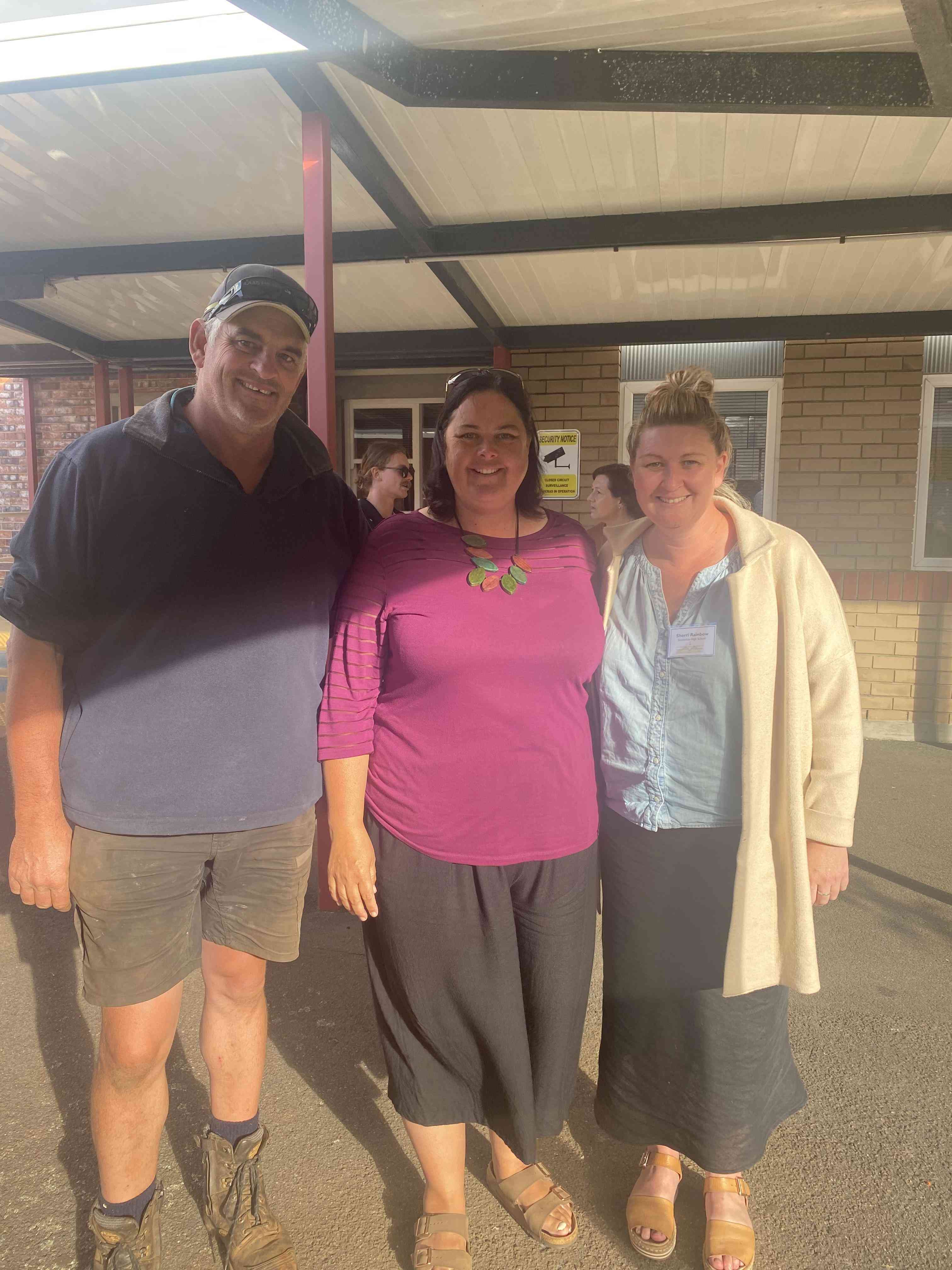
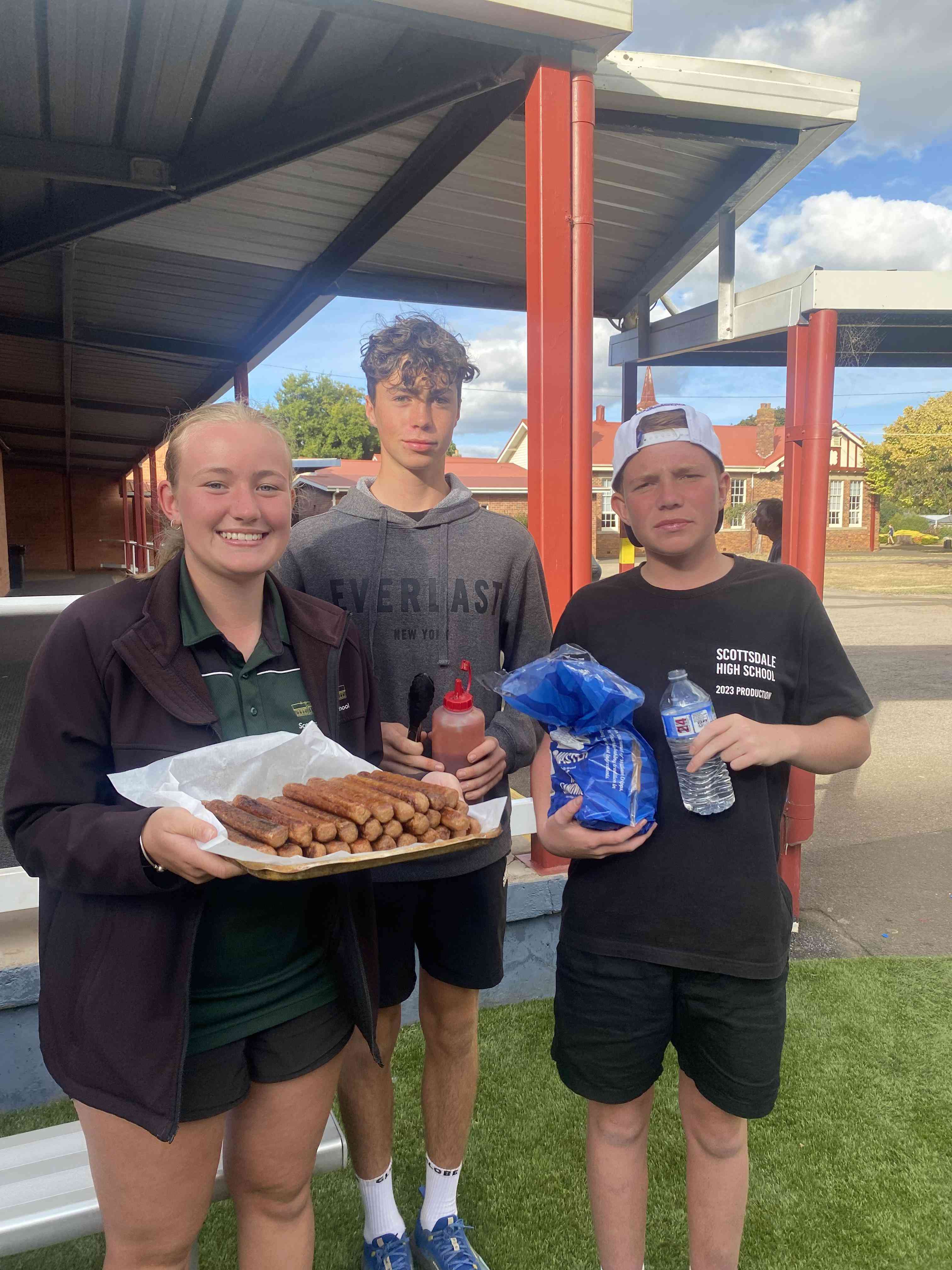





We are always very proud when we hear of students having success and we would like to congratulate Lorissa in Year 10 who has been selected to compete in the Australian Junior Amateur Golf Tournament in Perth, Western Australia in April. We wish Lorissa all the very best for the Tournament; her commitment to her training is exceptional and inspiring for others.
We received very positive feedback about our Year 9 and 10 students who have assisted as sports leaders at Scottsdale Primary School’s Athletic Carnival. Mr Broomhall said, “they have been great, motivated and encouraging and have joined in with the students playing basketball during break times. Thank you for lending them to us.” Well done to the following students who represented our school with pride at this event.
Kai S, Liam K, Tara L, Leila -J, Molly F, Maverick W, Jameson N, Ava B, Lochlan, Will P, Belle S.
SLB Roles 2024
On Friday 23rd February, our student leaders travelled to Hollybank to further their leadership skills by challenging themselves in the high ropes course. Thanks to Miss Juraimi and Mr Le Fevre for organising the day. Our teachers were impressed by how our students supported one another through the challenges and the strong sense of camaraderie that developed during the day. We are excited to be working with a strong group of leaders and we are looking forward to the contribution they will be making to our school culture throughout the year. Congratulations to the following students elected to the Student Leader Board in 2024:
- President: Tara
- Vice President: Maverick
- Secretary: Lorissa
- Treasurer: Haydan
- School Committee: Beau
- Community Committee: Molly and Tori
Our student leaders will be inducted at our whole school assembly on Friday 8th March at 10.50am followed by morning tea for our students and families.
Reading Focus for 2024
It has been wonderful visiting classes across the school and seeing students engaging in wide range of learning. Developing students’ skills in reading is a focus for us and there is further information below about Reading in Tasmanian Government Schools. Our Library has a wonderful and expansive collection of fiction and nonfiction texts for our students and it is great to see students engaging in reading at the start of many classes. Whilst we are developing reading skills across all learning areas, our English teachers have a key role in supporting the development of students’ literacy skills and they have planned engaging units for students throughout the year.
Currently, in Year 7 students are working on their inference skills to further their comprehension and high order thinking skills. They have commenced their novel study, Hatchet about a teenager survival in the wildness after a plane crash.
In Year 8, all classes are exploring strategies to develop their writing and create engaging and persuasive texts. They're learning to write in greater detail and using powerful language to communicate their ideas.
In Year 9 English students have been developing reading routines (a reader’s notebook) for the beginning of each lesson. Students have also been studying a documentary titled “Black Fish” which is all about whales in captivity. Students for their assessment have been formulating an opinion to construct an exposition (persuasive) essay.
In Year 10 English student begun a new way of learning with a weekly toolbox lesson. The aim of this lesson is to assist students with identified learning more about reading skills they will need to build their reading comprehension of a text. Students have also been studying a text titled “Ten Things I Hate About You” based on Shakespeare’s Taming of the Shrew, and starring Heath Ledger. Students will begin writing an analytical response.
Teachers will be monitoring students’ progress in reading skills during the year and should you have any queries, please do not hesitate to contact your child’s English teacher. We also strongly encourage students to be reading at home; not only does this help to build students’ literacy skills, it is a great way to reduce stress and anxiety.
Safeguarding Training
If you are intending to volunteer on school events, excursions, canteen etc. you must have completed the DECYP Safeguarding Training. If you have any questions, please contact Mrs Kath Smalldon through our school office.
Safeguarding-Training-posters.pdf (education.tas.gov.au)
Attendance
Let’s make every day count.
By showing up to school every day, your child will have the best opportunity at a bright future. It gives them every chance to be around friends, learn new things, and find interests.
Good attendance habits can sometimes be hard to stick. But creating a solid routine, from the start of Term 1, can set your child up for success for the year ahead.
If you’re looking for tips on how to create better attendance habits, visit the Anything can happen website
Please always talk to us if you’re having trouble getting your child to school. We’re here to help.
For Every Child Campaign
At our recent School Association meeting we discussed the For Every Child Campaign which is supported by the Australia Education Union(AEU) and our School Association would like us to share this information with families. The future funding of every public school in Australia is being decided by the politicians in the next twelve months. Full funding of public schools if the best investment we could make in our future.
Here's a brief overview of the situation:
In Australia there is a predetermined monetary figure called the Schooling Resource Standard (SRS) that is an estimate on how much money a school needs, per student, to provide adequate education.
The SRS is made up of a base amount (2023):
- $13,048 for primary students and
- $16,397 for secondary students.
And up to 6 needs-based loadings which factor in students with disability, Aboriginal and Torres Strait Islander, socio-educational disadvantage, low-English proficiency, school size and location.
You can read more on the SRS here.
So, what does that mean and why are we reaching out?
- In Australia only one state or territory fully funds their Government Schools, the ACT.
- For Government Schools in Australia the federal government provides 20% of the SRS. The Federal Government fully commits to this.
- Our state government is responsible for the remaining 80% of the SRS.
- In Tasmania, the state government contributes 70.1% of the SRS.
- An additional 4%, is allocated as a depreciation allowance. The school does not receive these funds for educating our students.
- Each student in Tasmania is lacking $2080 in funding annually from the base figure determined to meet their education needs.
- For a schools this means they are missing out, annually, on:
- $208,000 for a school of 100 students,
- $416,000 for a school of 200, and
- $624,000 for a school of 300.
What could your school do with that extra funding? Is it:
- Learning resources?
- Additional support teachers or TAs?
- Targeted literacy programs?
- A social worker or wellbeing program?
So, what can you do as a School Association?
- You can individually or as a committee support the AEU campaign.
https://www.foreverychild.au/ - You can speak with your local state and federal members of parliament. Invite them to a committee meeting next year. Share the things that your school association is raising funds for to help your underfunded school provide education to our students.
This might pose challenges for school principals and staff and any parents who are also DECYP employees. If they are uncomfortable participating in the conversation, they can excuse themselves from the room; ensure that their absence is recorded in the minutes. They may wish to abstain from any votes if they stay in the room. - You could write to your local state and federal members calling for a commitment to funding education.
- Write to Minister Jaensch (Tasmania’s Education Minister) and Minister Clare (Australia’s Education Minister).
Reading in Tasmanian Government Schools
Learning to read sets you up for life
Reading is foundational to everything we do – learning, working, functioning in society.
Every young Tasmanian should have the reading skills they need when they leave our schools.
This year all Tasmanian Government schools are taking steps to introduce a new way of teaching reading. This follows the latest national and international research about how our brains learn to read.
What does the research say?
Children aren’t born with natural skills in reading, like they are for walking and talking. They must develop new pathways in their brain to master this skill. It is a complex process.
Current research shows that reading can be broken down into a series of skills. This starts with phonics –the relationship between letters and sounds. In upper primary, secondary and college, the focus shifts to reading comprehension.
At every stage it’s important that students master all the individual skills before moving on. This is the best way to set them up for success.
Our teachers are boosting their skills.
From 2024 all our teachers will be undergoing training in how to teach reading based on the latest evidence.
Importantly, all staff from Kindergarten to Year 12 will be doing the same training. This means that by 2026, no matter where your child goes to school, they will be taught to become confident readers in the same way.
You might see changes at your school
All schools are at different stages with putting these changes in place. You and your child might notice these changes already happening at your school. Other schools will be working towards change by 2026. Read more about Tasmania’s new approach to reading on the DECYP website Literacy - Department for Education, Children and Young People (decyp.tas.gov.au)
Elizabeth Willliams
Principal
Vaping – resources available for families and students
Vaping continues to be a trend amongst children and young people.
Electronic cigarettes, or vapes, are similar to smoking cigarettes, but don’t use tobacco.
Instead, vapes are a battery-operated device which heats a liquid. This liquid turns into an aerosol and is inhaled. Like smoking cigarettes, vaping is highly addictive. Research shows that young people are three times as likely to start smoking if they vape.
While Tasmanian law says that a person under 18 can’t use, possess or buy vapes, we know that some young people are doing it because they believe it’s a safer option than smoking cigarettes.
It’s important to work together to educate them about the health impacts of vaping and the harm it can cause on their short- and long-term physical health.
The Department for Education, Children and Young People has a dedicated webpage with information and resources for teachers, parents/carers and young people. This includes tips for talking to your children about vaping and how you can support them in quitting. The attached fact sheet also has some useful information to help support you in with these conversations.
At a school level, we are approaching vaping as a health issue. We use a range of educational resources to help students make healthy choices and informed decisions.
It’s important that we all work together to nurture the wellbeing of students so they can continue to grow, thrive and succeed.
If you have any questions or concerns, please get in touch with the school or our school nurse, Julie.
Student Leadership Board - Hollybank
The Student Leadership Board had a great day out taking on the High Ropes Course at Hollybank. Our leaders showed great resilience and courage throughout the session. Many of them pushed through their fear of heights and those who weren't afraid, were patient and offered support to get everyone through the course. It was enjoyable and encouraging to observe the increase in camaraderie of the group by the end of the session. Students had a BBQ lunch to finish the day and using their ingenuity, some students played cricket using items they found. Thank you to Miss Juraimi and Mr Le Fevre for organising the day and accompanying our students.
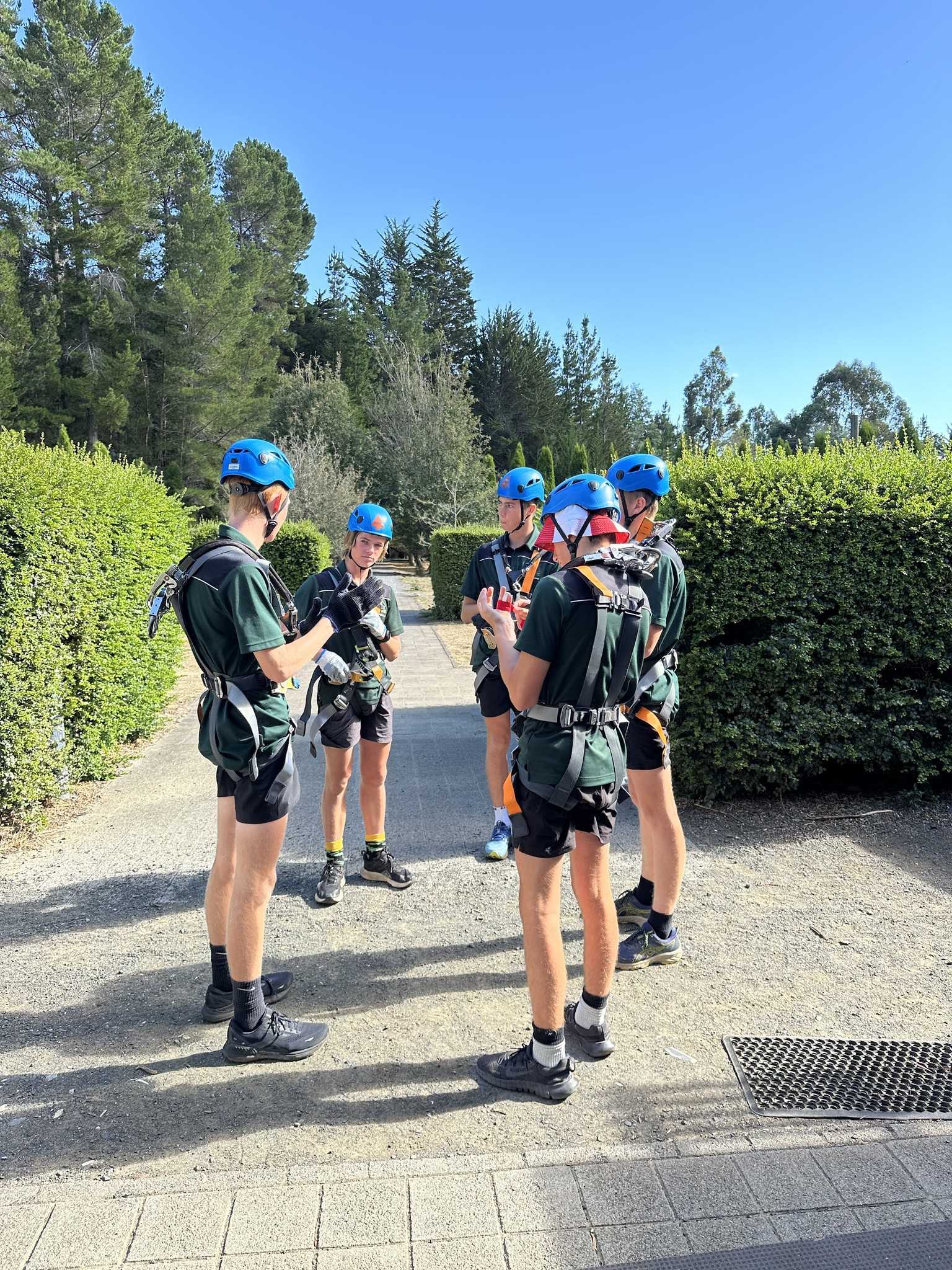














On Tuesday 27th February the Working with Children students visited Riverbend Park in Launceston. The students had the chance to interact with the different play areas/facilities on offer and made observations based on the different types of play (discovery, physical, creative, imaginative, manipulative, and social) each space allowed for. Following our visit to Riverbend Park the students will be completing an assessment task based on their learning.
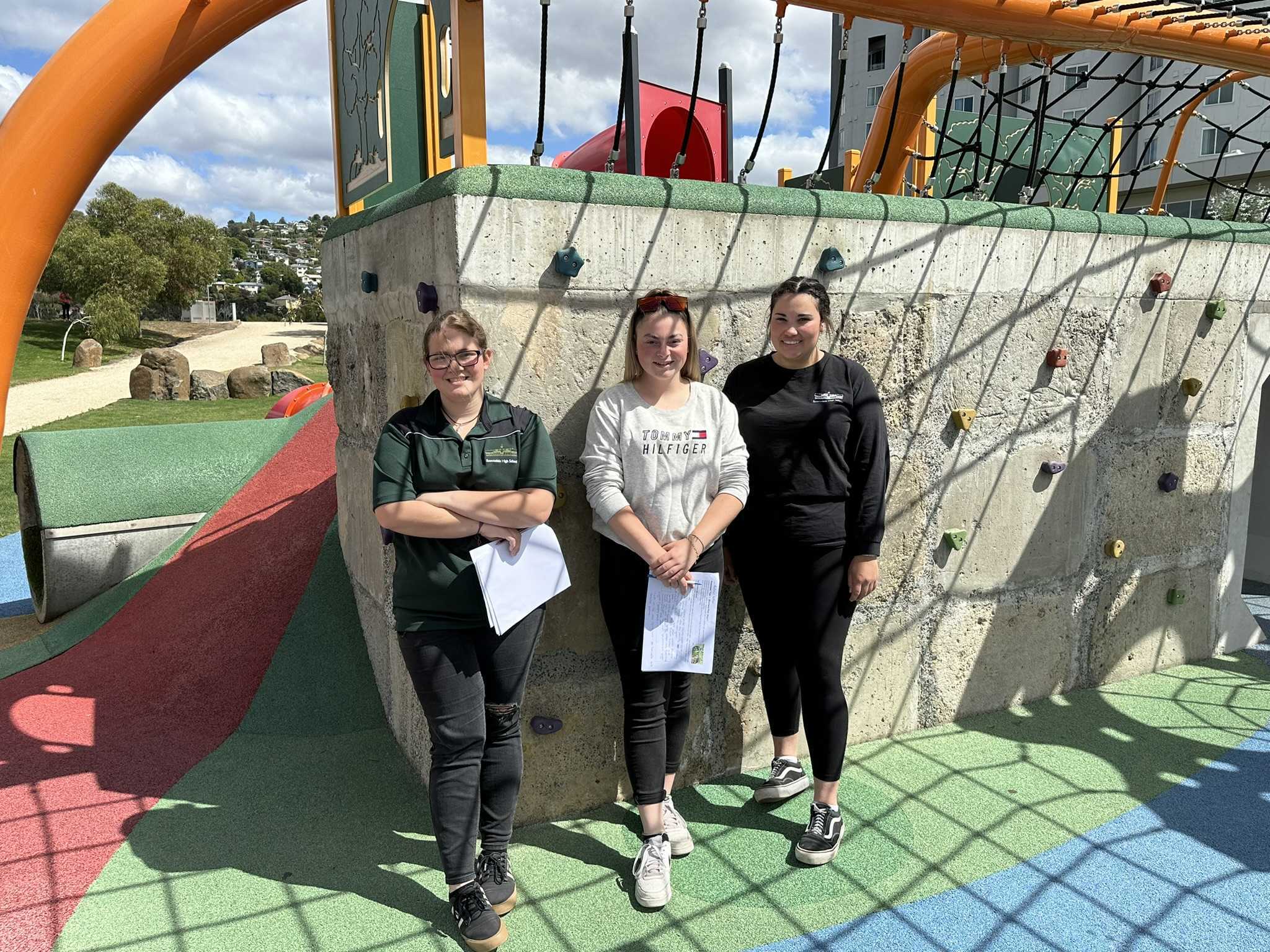
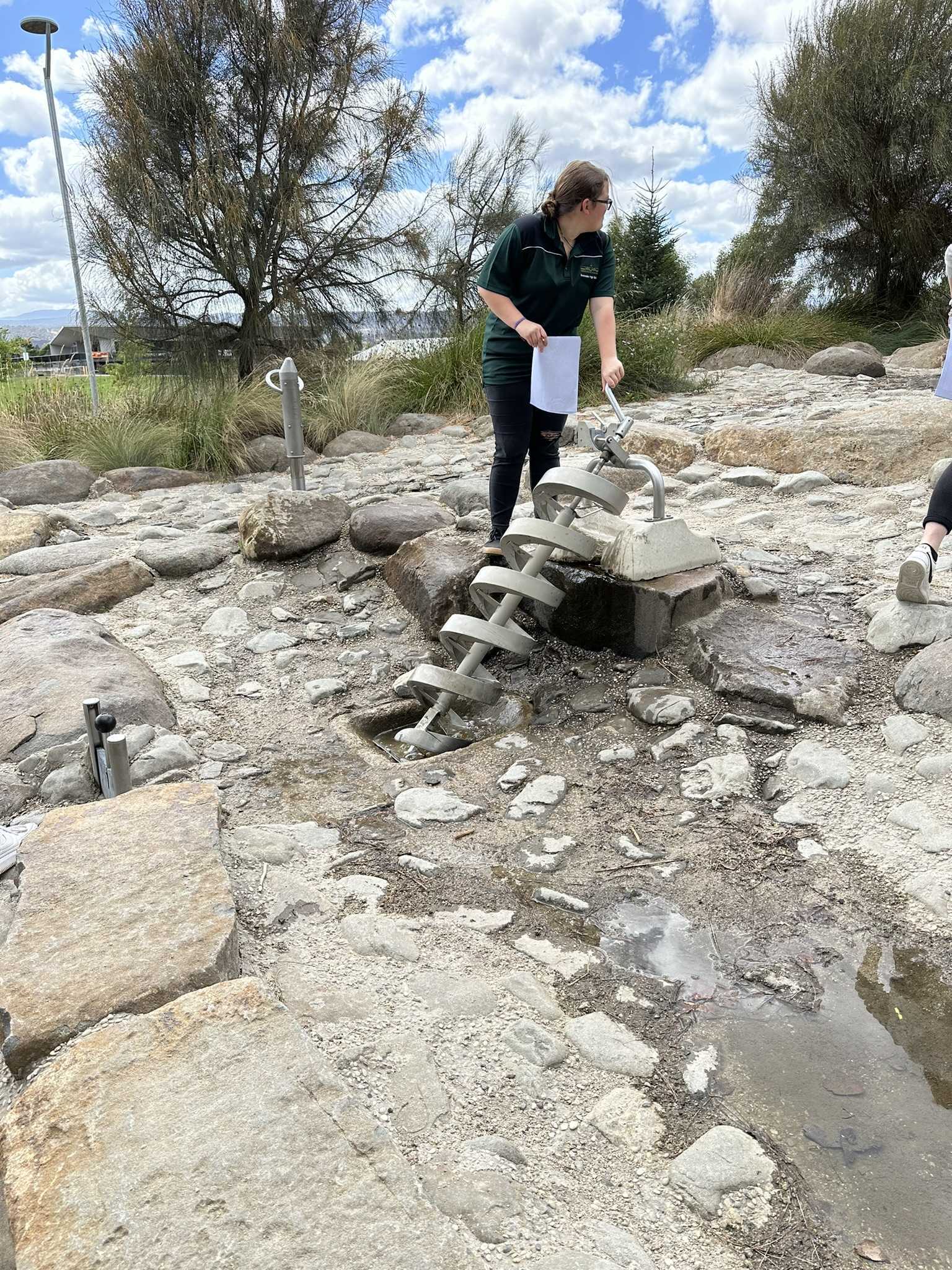
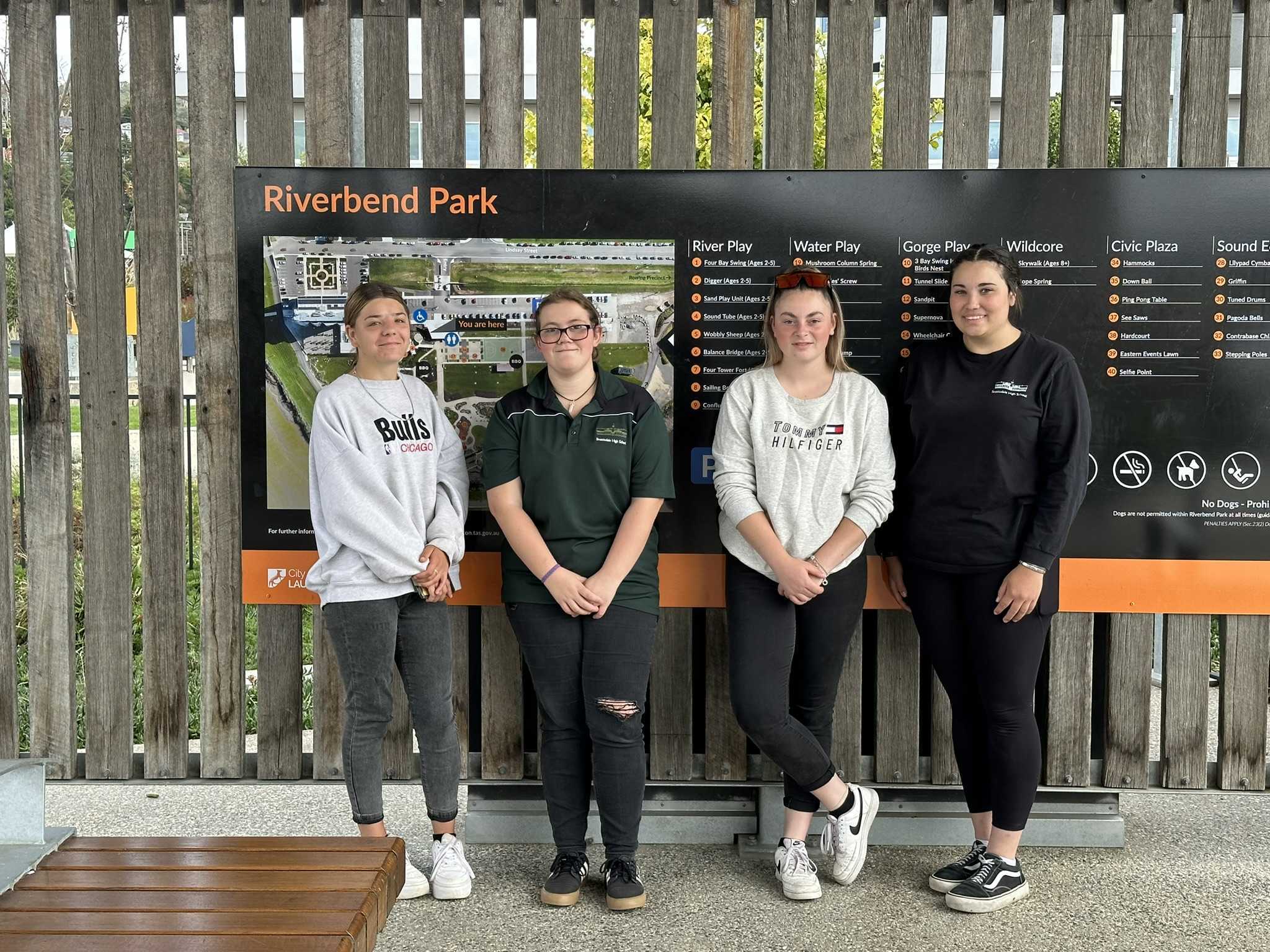



NOTICEBOARD




